The latest Apple operating system release, macOS Ventura, was launched on October 24, 2022. macOS Ventura includes a defect causing loss of the Full Disk Access permission, impacting several security applications, including Endpoint Protector.
Important: If you are using JAMF or a similar device management system to deploy Endpoint Protector, this scenario will not impact you.
If you are not using a device management system to deploy Endpoint Protector, your
manual input is needed to re-enable Full Disk Access after the macOS upgrade.
To avoid incompatibilities between macOS Ventura and Endpoint Protector, customers should upgrade to the latest macOS Ventura-compatible Endpoint Protector Client release before upgrading endpoints to macOS Ventura.
Customers are recommended to delay updating endpoints to macOS Ventura until the 5.7.0.0 Endpoint Protector Functional Release is available, targeted for January 2023. Upgrade the Endpoint Protector and EasyLock Clients to the Ventura-compatible versions before updating the endpoints with macOS Ventura.
If upgrading to macOS Ventura is urgent, we recommend the scenarios described below.
Endpoint Protector macOS users
- Upgrade to the 5.6.0.0 Endpoint Protector Server version using the LiveUpdate feature;
- Contact Customer Support to obtain the 5.6.2.0 Endpoint Protector Maintenance Release offline patch;
- Upgrade to the 2.6.5.0 macOS Endpoint Protector Client, provided with the 5.6.2.0 Endpoint Protector Maintenance Release;
- Apply the macOS Ventura update;
- Manually enable Full Disk Access if you do not handle deployments using a device management system;
- Restart the computer.
Endpoint Protector and EasyLock macOS users
- Upgrade to the 5.6.0.0 Endpoint Protector Server version using the LiveUpdate feature;
- Contact Customer Support to obtain the 5.6.2.0 Endpoint Protector Maintenance Release offline patch and the 2.0.3.2 Easylock Client;
- Upgrade to the 2.6.5.0 macOS Endpoint Protector Client, provided with the 5.6.2.0 Endpoint Protector Maintenance Release;
- Upgrade the Easylock Client on the endpoints to Easylock Client 2.0.3.2;
- Apply the macOS Ventura update;
- Manually enable Full Disk Access if you do not handle deployments using a device management system;
- Restart the computer.
Full Disk Access
When you upgrade to macOS Ventura a macOS defect causes Endpoint Protector to lose the Full Disk Access (FDA) permission previously granted. We outline that Endpoint Protector depends on this permission to function to its full capabilities.
To verify if Endpoint Protector has Full Disk Access permission, navigate to the
Reports and Analysis section, and from the
Logs Report, filter Events for
Client Integrity Fail.
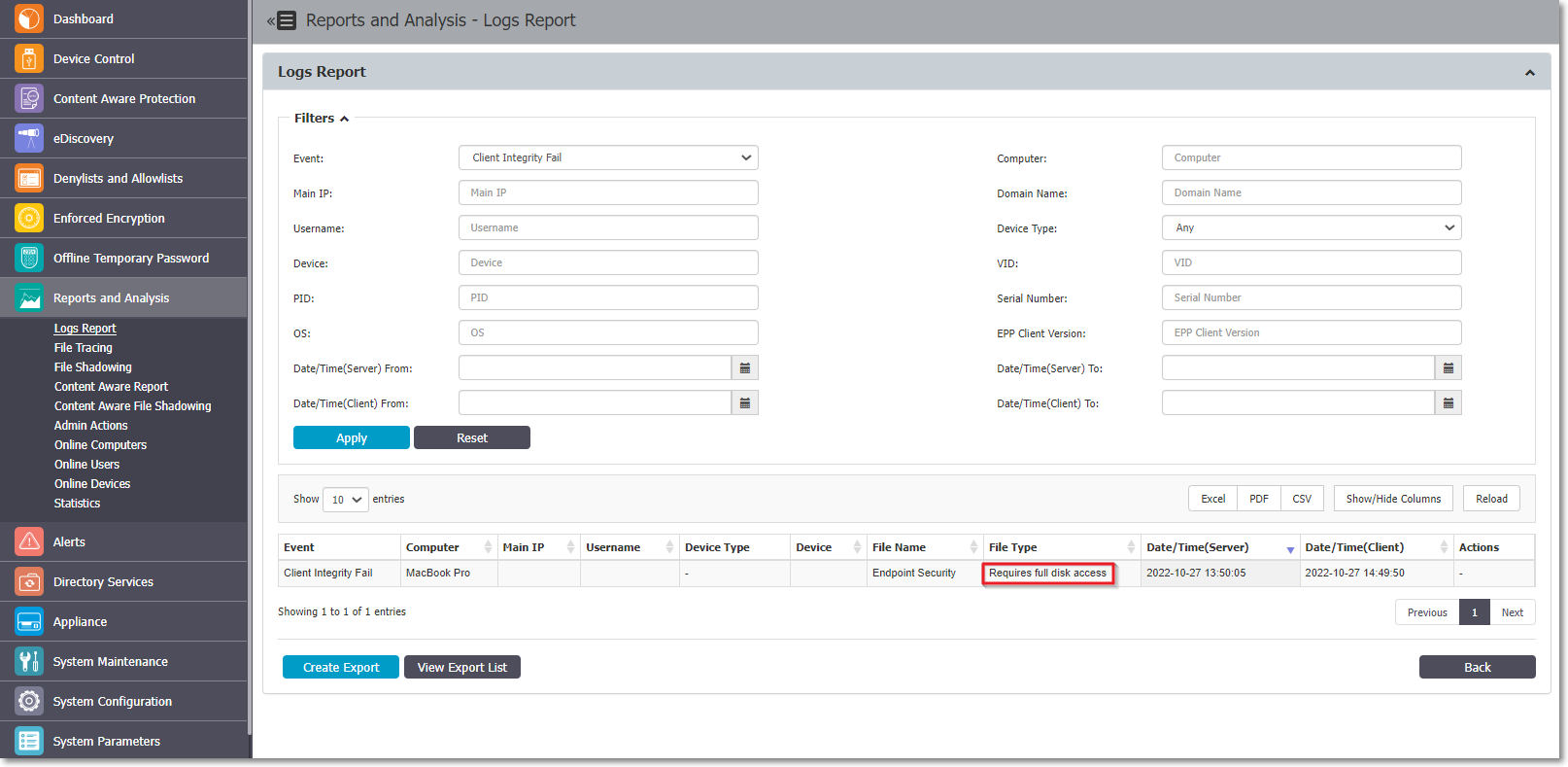
How to manually enable Full Disk Access
You do not need to manually enable Full Disk Access if you are using a device management system, e.g., JAMF, to deploy the Endpoint Protector client with Full Disk Access enabled.
If you do not use a Mac device management system, you will need to manually re-enable Full Disk Access for the Endpoint Protector Client on endpoints after upgrading to macOS Ventura due to the Ventura upgrade issue.
- Open System Settings, select Privacy & Security, and then select Full Disk Access;
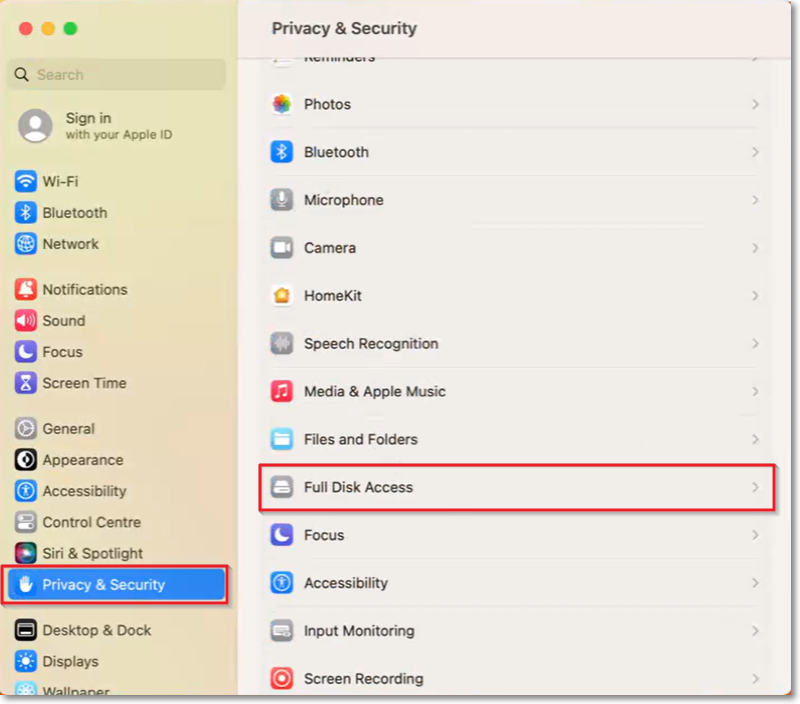
- Select EndpointProtectorClient from the list and click - to remove it;
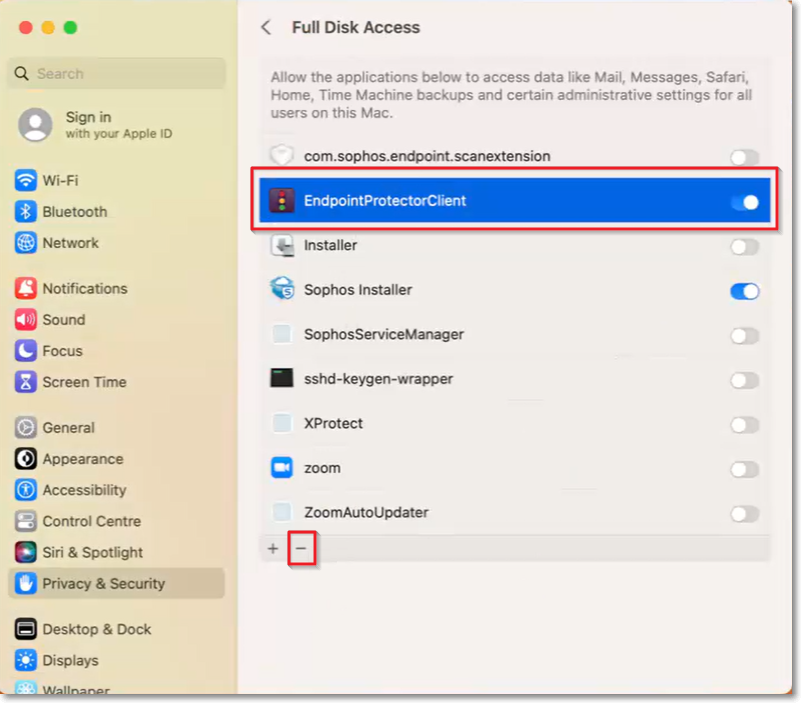
- Authenticate to be able to modify settings;
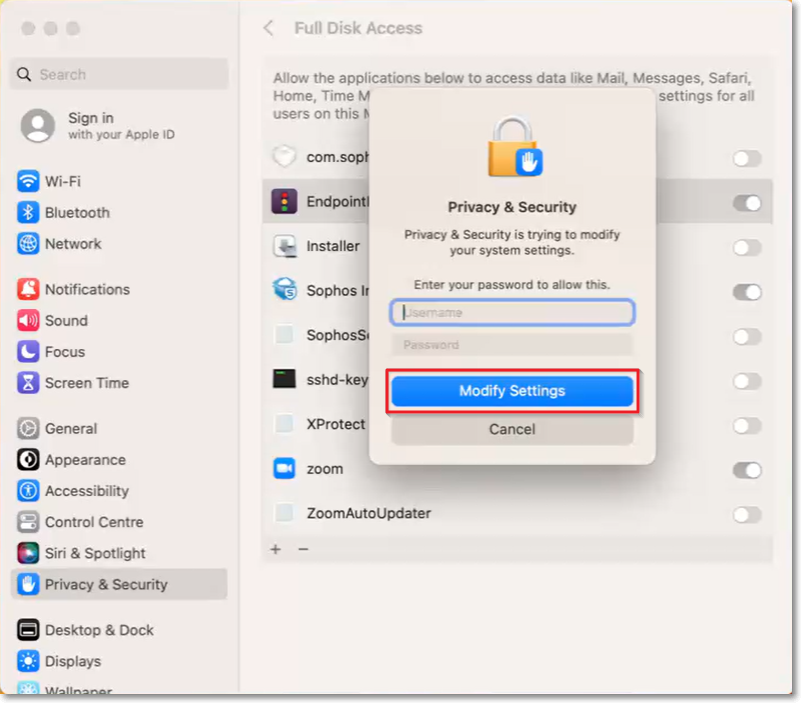
- Click +, select EndpointProtectorClient from the Applications folder, and click Open;
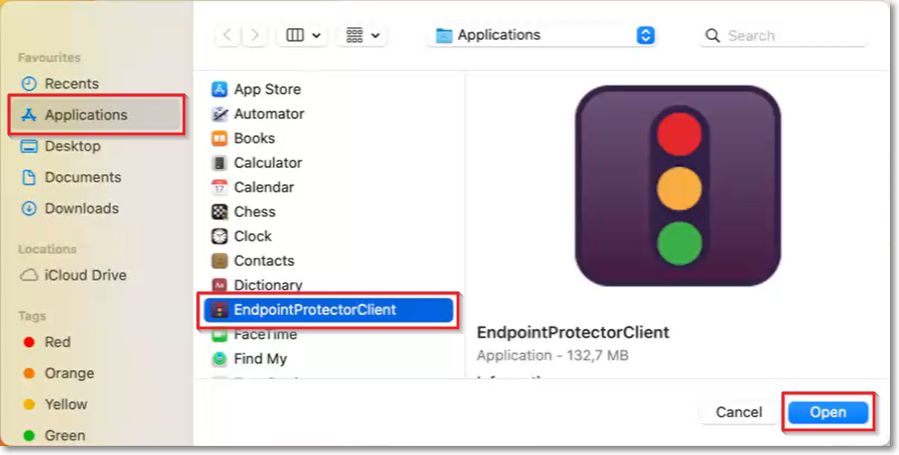
- Verify if Full Disk Access is enabled by default.
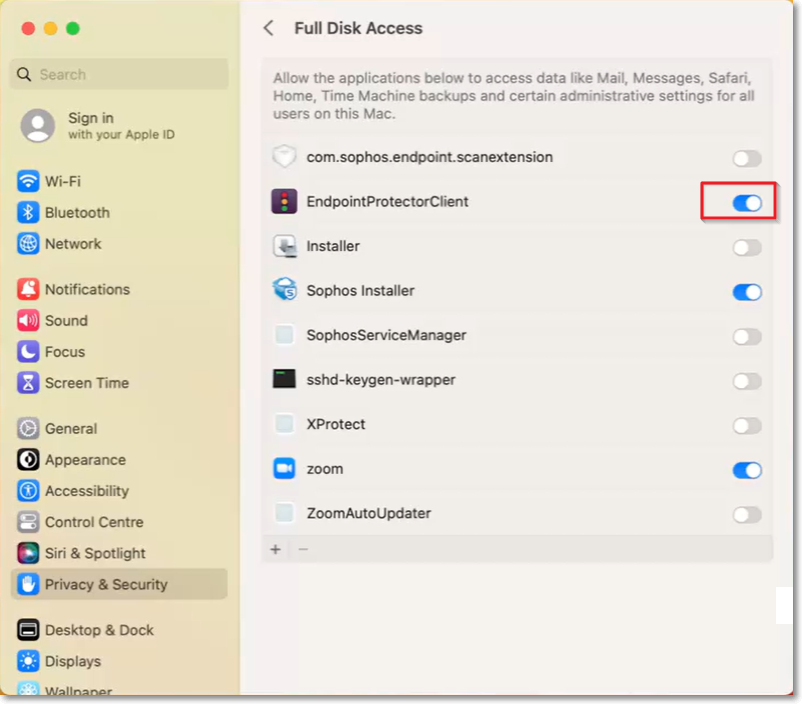
- Restart your computer for these changes to take effect.
At this point, you should have enabled Full Disk Access, and Endpoint Protector is expected to run properly.